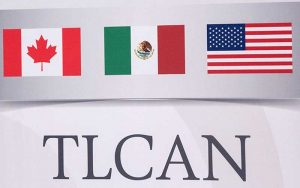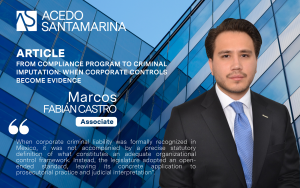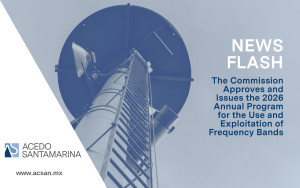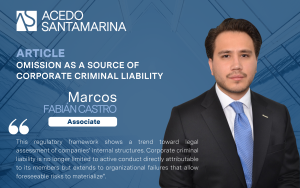
One of the novelties of the United States-Mexico-Canada Agreement (“US-Mexico-Canada Agreement”) is the creation of a chapter for the regulation of anti-corruption provisions; a matter that the previous agreement, i.e. the North American Free Trade Agreement (“NAFTA”), did not contemplate.
In general terms, with the inclusion of anti-corruption provisions in the EUAEC, the three countries that are part of the agreement seek to establish measures to prevent and combat corruption in their investment and commercial relations. It is important to note that the scope of Chapter 27 is limited to measures to prevent and combat corruption, in relation to any matter provided for in the EUAUMC.
Although the draft of Chapter 27 -as well as the rest of the contents of the EUAEC- is in the process of being discussed by each of the congresses of the countries involved, the Ministry of Economy has announced that the contents of this chapter will mainly deal with the following topics:
(i) Obligation of the parties to adopt or maintain such measures as they deem necessary for the protection of any person who in good faith and on reasonable grounds reports to the competent authorities any offense related to corruption offenses.
(ii) Obligation of the parties to include or maintain within their legal frameworks, laws that criminalize the offering or solicitation of undue advantages to public officials. This section includes the so-called “peculado” (embezzlement).
(iii) Obligation of the parties to adopt measures to provide adequate processes for the training and selection of public officials in positions deemed vulnerable to corruption, to promote transparency in the public service, for the detection of conflicts of interest and to facilitate the reporting of corrupt acts by public officials.
(iv) Commitment of the parties to encourage companies to prohibit facilitation payments, as well as to adopt internal compliance programs.
(v) Strengthening cooperation between their respective authorities and facilitating the exchange of experiences in the fight against corruption.
Although Mexican law has an anti-corruption legal framework, it is still not entirely clear whether the Mexican government will have to make certain reforms to update its anti-corruption legislation (once the EUAUMC is approved), since, among other issues, our legislation does not provide for the protection of whistleblowers, as the EUAUMC will probably do.
In any case, this Chapter will represent a strengthening of our National Anticorruption System.
At Acedo Santamarina we are ready to advise our clients on anti-corruption compliance matters. If you have any questions please contact Andres Acedo at aacedo@acsan.mx or +52-55-5950-2222.




